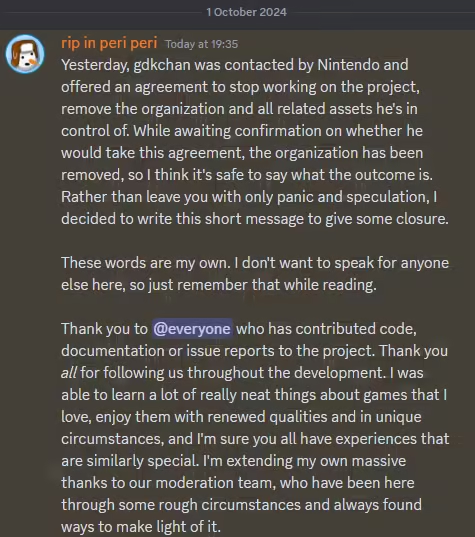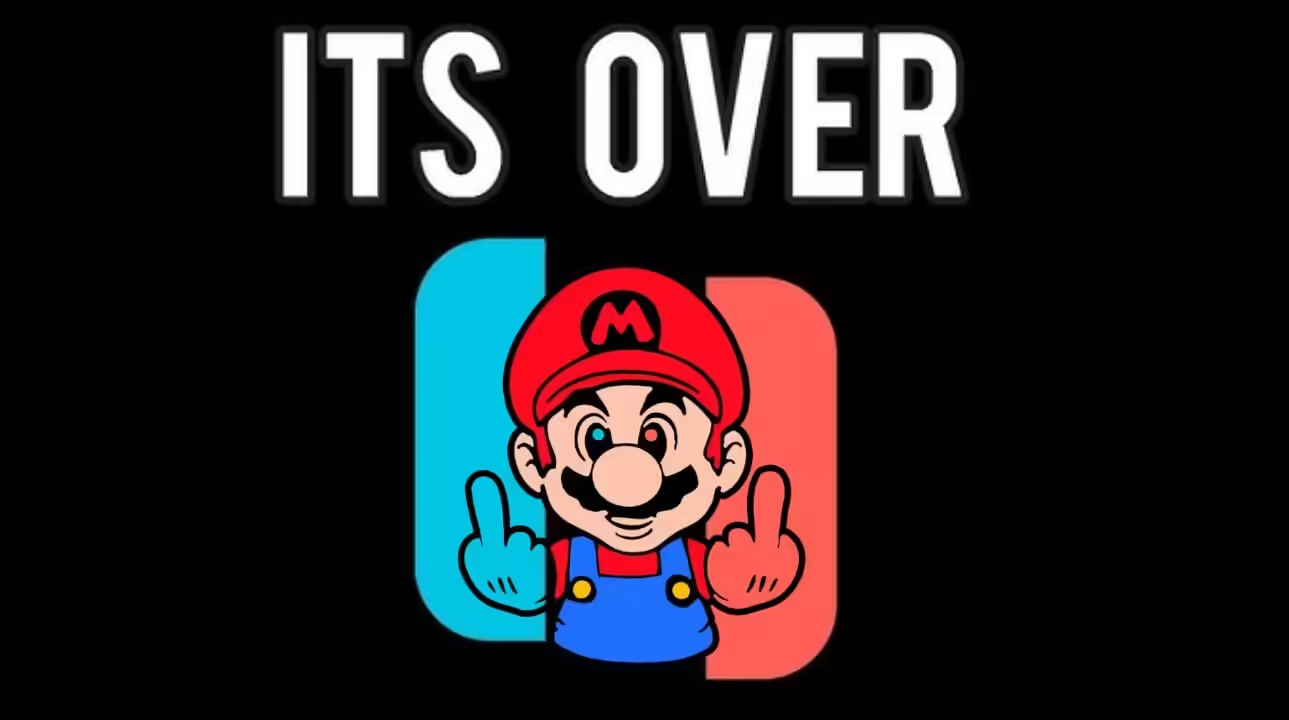Nintendo is keeping their 100% win streak after Ryujinx declared to be ceased and surrendered.
Ryujinx and Yuzu were both developed as solutions for those who wanted to experience Nintendo Switch games on their PCs. Ryujinx, which first emerged in 2018 after starting its development in 2017, was celebrated as one of the first emulators capable of booting commercial Nintendo Switch games. Yuzu, another open-source emulator, followed a similar trajectory, offering an accessible way for users to run Switch games.
The growth of these emulators was driven by the enthusiasm of their developers and communities, many of whom believe in preserving video games by making them accessible through various platforms. This often taps into the argument that emulation can help protect video game history from disappearing with outdated hardware.
Nintendo’s Legal Push Against Emulation
Nintendo has long maintained a strict stance against emulation, viewing it as a gateway to piracy and a violation of its intellectual property rights. The company argues that emulators often facilitate illegal access to games that are still commercially available. This was a key factor in its legal battle against Yuzu’s developer, Tropical Haze, which ended with the developer agreeing to pay $2.4 million in damages and cease operations.
In light of this precedent, it wasn’t entirely surprising when Ryujinx’s creator, gdkchan, received a legal notice from Nintendo, leading to a suspension of the emulator’s development. Earlier this year, users reported being unable to access Ryujinx’s GitHub page, which was followed by the emulator’s download page becoming inaccessible.
The Final Blow to Ryujinx
The details of Ryujinx’s fate emerged through a message on the project’s Discord server. Co-developer riperiperi confirmed that Nintendo had reached out to gdkchan and presented an agreement to halt the development of the project, remove the organization, and take down all associated assets. In an effort to be transparent with the community, riperiperi posted this information, which was subsequently shared on Ryujinx’s social media channels.

The decision to remove the project from public access was a practical one, given the legal consequences of opposing Nintendo. Facing a potential lawsuit similar to the one against Yuzu, gdkchan opted to comply with Nintendo’s request rather than risk costly legal battles. At the time of writing, Ryujinx’s Patreon and project website remain accessible, but the emulator’s GitHub repository and download page are no longer available.
Historical Precedents and Legal Consequences
The shutdown of Ryujinx and Yuzu aligns with Nintendo’s ongoing campaign against piracy and emulation, which has led to numerous high-profile cases over the years. In 2022, Gary Bowser, a hacker associated with the distribution and sale of piracy-enabling devices, was sentenced to 40 months in prison and ordered to pay $4.5 million in damages. In another notable case, the owner of the ROM site RomUniverse was ordered to pay $2.1 million in damages for copyright and trademark infringement, while an Arizona couple was hit with a $12.2 million fine in 2018 for running two websites offering pirated Nintendo ROMs.
These legal cases underscore Nintendo’s commitment to protecting its intellectual property and preventing piracy on a massive scale. The company has made it clear that it will aggressively pursue any individual or organization involved in distributing or facilitating unauthorized access to its games.
Ethical Implications of Emulation
The debate over emulation is far from one-sided. Many emulator advocates argue that their work is about game preservation, ensuring that titles aren’t lost as consoles become obsolete. With older systems no longer being manufactured and games becoming unavailable, emulation can provide a way for new generations to experience classic titles. It’s an effort rooted in keeping gaming history alive.
However, there’s a fine line between preservation and piracy. When it comes to the Switch, a console that is still actively being produced and supported by Nintendo, the use of emulators raises significant ethical questions. Is it ethical to provide users with access to current-generation games without the consent of the developers or publishers? This is a question that lies at the heart of the emulation debate and one that has yet to be definitively answered.

